If you find yourself pirouetting in your sleep and subdividing the rhythm of life into segments of eight counts then chances are you’re considering a career in dance or a related field.
So much of success in dance comes from practice and competition while actually dancing. Is it even entirely necessary to get a degree in dance?
The fact is there are some harsh realities that every artist must face, and navigating the often treacherous world of art can be tricky to do on one’s own. That’s where a dance degree can become a huge asset.
Enrolling in a dance program gives you a framework from which to work as well as a network of dancing buddies and experiences that truly pay off when it comes time to land a job.
Dance degrees don’t stop at dance performance either. Many dance degree programs offering courses within the curriculum that encourage you to expand your horizons as a dancer and as a professional.
Some of the courses include work in personal training, yoga instruction, dance therapy and other useful areas related to dance that may help to bolster your career as a performer.
Take a closer look at all a degree in dance has to offer.
What Is a Dance Degree?

A dance degree is typically a Bachelor of Fine Arts in Dance or something similar. Some dance degrees are Dance education degrees where students pursuing a BFA in dance have the option to also pursue a teacher certification program.
A BFA is an undergraduate program that combines academic programming with technical training in the art of dance. A rigorous dance rehearsal and performance schedule are often part of the program. These degrees typically take 4 years to complete.
- 130-160 credit hour degree with general education as well as major requirements.
Some dancers choose to complete a BFA in dance and follow that with a master’s degree in dance therapy. Take a look at some of the options for a dance degree:
Dance Degree Options:
- BFA Dance Performance- for performers
- BFA Dance Education- for dance teachers
- Master’s in Dance Therapy/ Movement Therapy/ Somatic Practices- for therapists
- Yoga Certification add-on
BFA dance Performance Example Curriculum:
- Ballet Technique
- Performance in Practice
- Contemporary Dance Technique
- Dance History
- Yoga for Dancers
- Movement Improvisation
- Choreography
BFA Dance with Teacher Certification (may be completed as a dual degree):
- Similar to Above With Additional Certification Requirements
- Teaching Dance to Children
- Dance Pedagogy
- Contemporary Issues in Dance Education
- Adaptive Physical Education
- Diversity and Social Perspectives in Education
Master’s in Dance Therapy/ Movement Therapy/ Somatic Practices
- Foundations of Dance and Movement Therapy
- Somatic Counseling
- Body Movement Observation and Assessment
- Counseling and Helping for Couples and Families
- Internships for Dance/Movement/Somatic Practices
- Advanced Counseling Skills Including Diagnosis and Treatment
Yoga Certification
Yoga certification is a popular add-on for dance professionals who are looking to combine their passion for dance with a profession that is movement-based. Many dancers choose to teach yoga part-time to supplement their performance career. Take a look at what a yoga teacher training certification looks like:
200 Hour Yoga Certification (source* Yoga Alliance)
- Techniques and Training 100 Hours
- Teaching Methodology 25 Hours
- Anatomy and Physiology 20 Hours
- Yoga Philosophy and Lifestyle Ethics for Yoga Teachers 20 hours
- Practicum 10 hours
- Remaining Contact Hours and Elective Hours 25 hours
As you can see there are many options for individuals who are passionate about dance. Dance is a fantastic artform and therapy that helps with a wide range of therapeutic needs including relief from trauma. If you are considering becoming a dancer but aren’t sure if you want to make the leap, take a look at what it takes to be a dancer below:
What Does it Take to Be a Dancer?
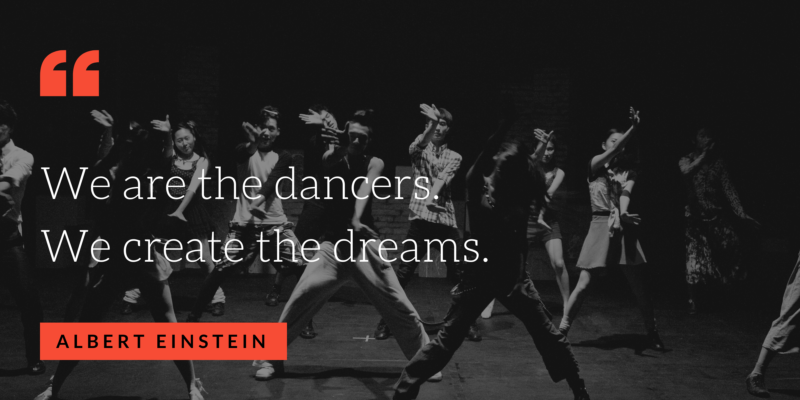
To be a dancer you need passion and grit. To do anything these two qualities are essential, but particularly with dance. Dancers are both professional athletes and professional artists. These two professions on their own take tremendous amounts of dedication and time. Having to do both at once is a huge task. But if you’re passionate enough and work hard enough, you’ll have what it takes to make it as a dancer.
Grit- remember to practice honing your dance skills every day. Grit is the quality that drives us towards mastery of a goal or a lifetime pursuit. Grit is driven by passion which is the fire that gets you to the dance studio every day. For more information on how to grow your grit, check out Angela Duckworth’s book on the subject.
Passion- while it is difficult to put a finger on passion and what it is exactly nevertheless, passion is seen as an essential quality to cultivate and leads to joy in life. How passionate are you about dance? Do you think about your steps almost constantly every day striving to be better than you were yesterday? You might have what it takes to become a dancer.
Take Criticism- There are always going to be people who don’t like you and that is okay. People who take on tough feedback and grow from it are adaptable and resilient. It is important to hear tough feedback as just a fact of life. You don’t always have to apply the feedback you receive but you do have to know how to live and move through it.
Give yourself compassion- this is a tough profession and so beating yourself up is not really going to help you to become the dancer that you want to be. Try being your own best friend. Pursuing this craft as a profession may even get lonely sometimes- hours in the studio, and then more hours training in pilates, yoga, etc. There’s little time for a social life. So be good to yourself.
Stretch yourself- no, we don’t mean physically but that of course is necessary too. It’s good to master a technique but don’t be shy to learn from other types of dancers and choreographers. These influences make you a better more informed dancer. Dancers who stretch themselves increase their skills and increase the types of performances they may get hired for which is never a bad thing in the field of dance.
Be valuable- show up early and be prepared for anything that may come your way. This is the quality that gets you repeat employment and jobs. Leave the diva at the door.
Not Seeing What You’re Looking For, Check Out These Related Links:
- What Can I Do With an Art Degree?
- What Can I Do With a Theater Arts Degree?
- What Can I Do With a Physical Therapy Degree?
- What Can I Do With a Bachelor’s Degree?
- What Can I Do With a Master’s Degree?
- What Can I Do With a Massage Therapy Degree?
- What Degree Do I Need to Be a Massage Therapist?
- What Can I Do With a Doctoral Degree?
What Jobs Can I Do With a Dance Degree?
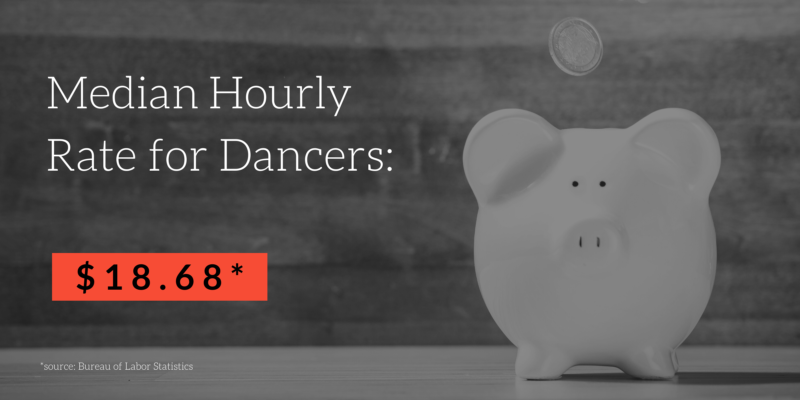
Arts administrator- the arts administrator has many duties and is responsible for the administration and marketing of an arts organization. The arts administrator will need a lot of experience working with a budget as a large part of this job does require that individuals create a financial plan to ensure that the organization is able to thrive. Part of this financial plan includes marketing and fundraising.
Arts administrators are also responsible for staffing as well as overseeing those staff. Additionally, the arts administrator will need to be able to create programming for the organization. The programming should reflect the mission of the organization. The programming may become a major source of funding for the organization and so marketing and public engagement are an important component to the programming.
According to the Bureau of Labor Statistics, an arts administrator earns an average of $92,780 per year. The location of the organization as well as years of experience of the candidate will determine the salary. Projected job growth remains low at 1%.
Soft Skills of an Arts Administrator:
- Organized
- Detail Oriented
- Planner
- Leadership
- Good Written and Oral Communication
Choreographer- a choreographer designs and creates routines for dancers, gymnasts, marching bands, musical theater performers and more. The choreographer is often a dancer or a performer who is familiar with the craft themselves. This person may work as part of a dance troupe.
The choreographer will typically meet up with a director to brainstorm various ideas to get a sense about the production. A choreographer may work closely with a director to determine the set, costumes, music and more. Choreographers may or may not have a say in who is hired for the roles in the production.
A choreographer will show up to rehearsals to check in on the progress of the routine. In many instances choreographers will rework or redesign routines as needed to better suit the need of the production.
According to the Bureau of Labor Statistics, choreographers get paid about $44,540 a year. The job growth is -1% with little or no change.
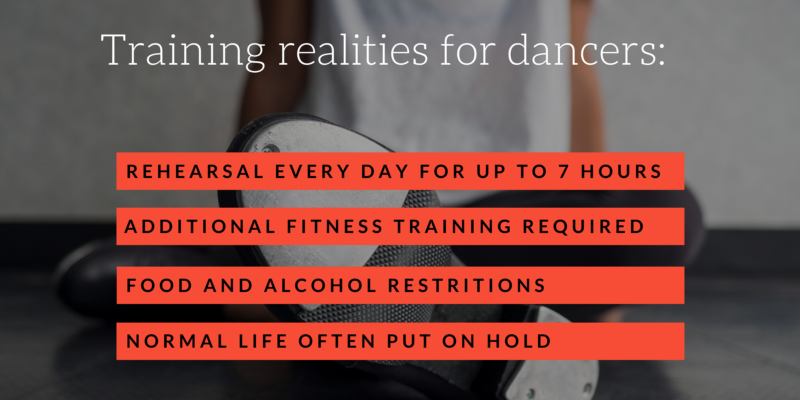
Soft Skills of a choreographer:
- Fun and engaging
- Good Listener and Communicator
- Patient
- Tenacity
- Adaptable
Community arts worker- A community arts worker has an important role as a person who encourages improvement in quality of life through the arts. The community arts worker may use music, dance, festivals, concerts, art, film and more to involve people groups who may be marginalized or lacking community support.
Community arts workers organize events wherein participants can enjoy the arts, participate in the arts, and also socialize and engage with community members. These events are centered around the needs of the community. So, a community arts worker must do research on a community’s needs and collaborate with other organizations that have a similar social goal in mind.
Community arts workers often teach the performance arts themselves, coordinate fund raisers, round up volunteers, and train other professionals to engage with best practices. As you may have guessed, community arts workers are often strongly tied into their local community and will encourage funding as well as education from the greater community at large.
Soft Skills Community Arts Worker:
- Friendly/ Involved With Community
- Excellent Verbal and Written Communication Skills
- Great Listener
- Organized
- Flexible
Dance movement psychotherapist- A dance movement psychotherapist is typically a dancer who is trained to use dance in therapy. There are a number of reasons that individuals seek out dance therapy and one of the most notable is for its efficacy in helping individuals deal with and process traumatic experiences.
Dance therapy is growing as the need for therapists has grown over the years. Dance therapists may also train in related areas such as somatic counseling and even psychotherapy. Dance therapists are required to work with a wide variety of populations including those with exceptionalities and from various ethnic backgrounds.
Dance therapists assess patients in a variety of ways including through observing body movement, and discussion. Dance therapists teach dances or movement-based techniques that help individuals process what concerns them. Somatic practice includes some dance but also incorporates yoga, mindfulness, organizational skills, and other planning techniques.
Dance Therapist Soft Skills:
- Patient
- Great Listener
- Accepting of Diversity
- Problem-Solving
- Organized
- Compassionate
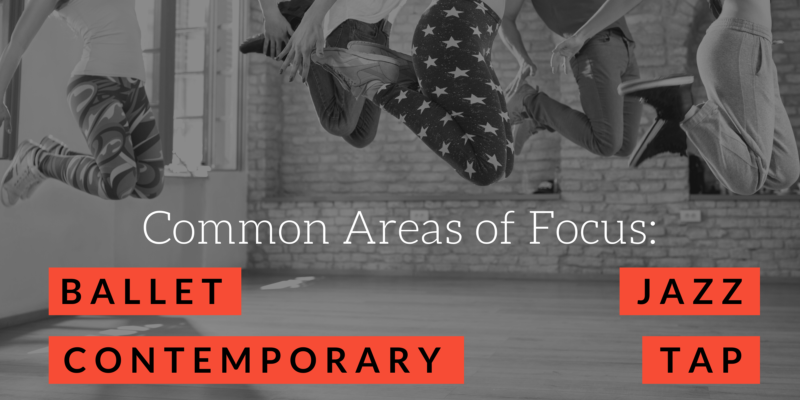
Dancer- most people with a dance degree would like to be professional dancers. As a professional dancer you will use movement and gesture to portray a character or role in any kind of production that requires dance. You will typically work alongside a choreographer and interpret their work. Some dancers use improvisation in their production and work with the directors to portray the character effectively.
A dancer may work in film or television as well as on stage. To prepare for the role, dancers are required to stay physically active to build their strength and endurance. In addition to being a professional artist, dancers are also professional athletes.
Some dancers must also use other skills such as singing and acting in their profession and many dancers in musical theater are required to do all three.
Dancers are required to prepare for auditions and to do so must maintain their physical abilities even when not in production. It is important for all dancers to also understand how to create choreography as there is often a choreographic component to their career. The median salary for a dancer is about $44,540 per year.
Dancer Soft Skills:
- Willingness to Learn
- Takes Feedback
- Great Listener
- Team Player
- Great Oral Communication
- Teacher
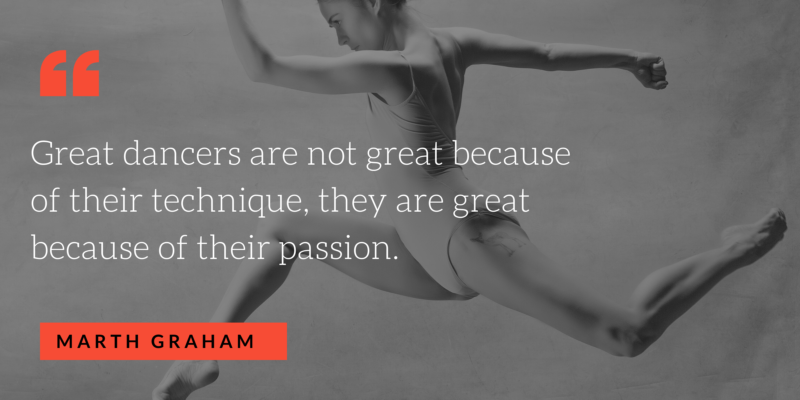
Personal trainer/ yoga instructor- as dancers are athletes in addition to artists it may come as no surprise that many individuals with a dance therapy degree work to become personal trainers as well as yoga instructors. In fact, many BFA dance programs include some coursework in yoga as well as the option to add-on a yoga teacher training program.
Personal trainers design programs to help individuals achieve their fitness goals. The personal trainer writes the program and provides insight into the best ways for the individual to complete the workout program. Many personal trainers meet 1:1 with their clients providing them with motivation to continue with a fitness routine as well as advance through a fitness routine.
Yoga instructors work with groups or individually and provide guidance on the best ways to tweak and improve upon yoga poses. Yoga instructors use flow routines as well as strength building to help people relax and gain further flexibility. Many yoga instructors often teach pilates and may even combine yoga instruction with dance therapy.
Soft Skills for Yoga Instructors and Personal Trainers
- Great With People
- Positive Attitude
- Encouraging
- Good Listeners
- Excellent Communication Skills
Theatre director- Most dancers are multi-talented and visionary and some even choose to become theater directors as part of or all of their career. Theater directors are intimately involved in every aspect of the theater including the funding processes, community engagement, production, and maintenance of the theater’s vision and purpose.
Theaters tend to be organizations that need money so funding is often central to what theater directors do. The theater director may write grants (depending on the size of the organization), liaise with potential donors and help to create fundraising opportunities for the organization. A theater director may hire staff and is often in charge of overseeing others as well as coordinating with the technical staff.
Theater directors may cast the production, block the performance’s movements, lead a rehearsal and monitor the pacing of a production. Theater directors often work alongside producers as well as assistant directors. Some companies will break this role into two roles.
Soft Skills of a Theater Director:
- Leadership
- Organization
- Great With Money
- Clear Communication
- Inspiring
- Tenacious
- Visionary
Not Seeing What You’re Looking For, Check Out These Related Links:
- What Can I Do With an Art Degree?
- What Can I Do With a Theater Arts Degree?
- What Can I Do With a Physical Therapy Degree?
- How to Become a Personal Trainer: What Degree Should I Get?
- What Can I Do With a Bachelor’s Degree?
- What Can I Do With a Master’s Degree?
- What Can I Do With a Massage Therapy Degree?
- What Can I Do With a Doctoral Degree?
What Are the Best Cities to Be in For Professional Dancers?
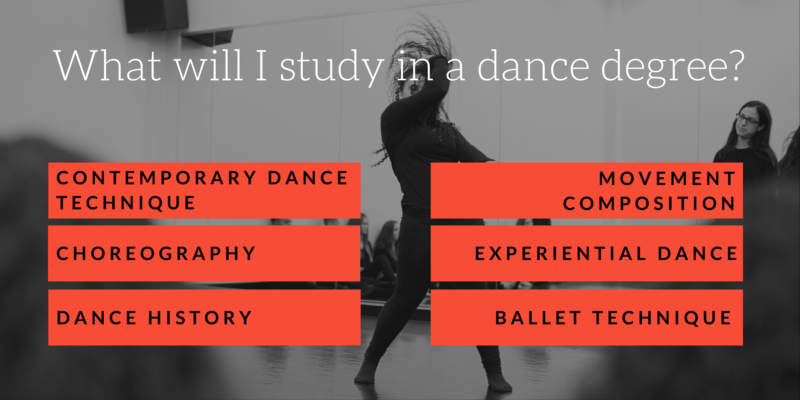
While there may be some easy to land local opportunities to perform, if you want to be a professional dancer it’s likely time to hit the road. The cities we noted for best opportunities for professional dancers are the ones with either the most performers or the biggest entertainment budgets. Take a look at our picks.
New York- New York, New York is an obvious choice for sheer volume. There are large dance companies, small dance companies, theaters, festivals, public arthouse installations and so much more. If you can imagine it as a dancer then chances are New York has done it. Got to New York for the plethora of dance opportunities but don’t be surprised to find some of the stiffest competition in the world. Nobody said this was going to be easy.
Los Angeles- Similarly to New York Los Angeles is filled with opportunities to shake your tail feathers. That being said Los Angeles and New York are nothing alike. In many respects Los Angeles kissed traditions goodbye long ago and so expect to find dance opportunities from a wide variety of backgrounds but with its own Los Angeles twist. With film and television much more prevalent you may find yourself dancing behind a camera more so than on a stage.
Las Vegas- What happens in Vegas is a whole lot of ruckus, but entertainment is at the heart of everything that keeps this spectacle in the middle of the desert going. Las Vegas can be a very stable place to gain employment as a dancer as recurring acts and scheduled performances often run for multiple years. As a dancer it may be beneficial for your to have a wide variety of dancing styles under your belt and some experience with acting and even acrobatics will not go amiss.
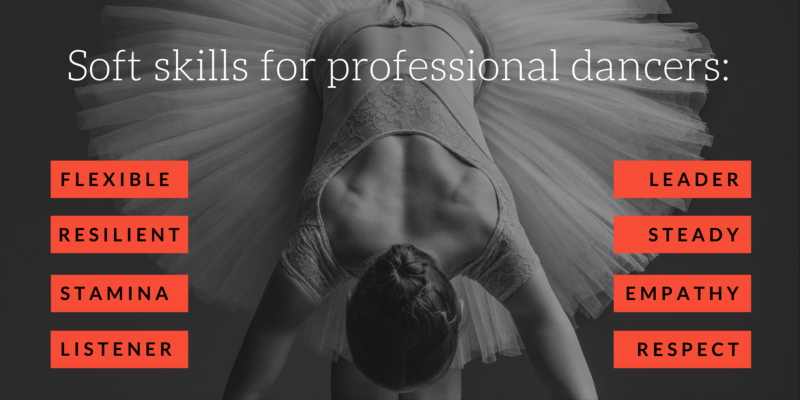
Orlando- Smile you’re in the happiest place on Earth- Disney World! Disney World is a great place to launch your career as a dancer. But be prepared to have the entire package if you want to land a job here. Expect to sing, dance, and interact with your audience. Orlando is dominated by Disney which isn’t a bad thing for dancers as Disney hosts hundreds of performances daily. Dancers employed by Disney may be employed to work in a specific show or may be “global” meaning they can dance anywhere in any of the parks. Disney is kind of like its own country and so the ethos of this job and the expectations are unique to the Disney culture. Want to get ahead at Disney? Be prepared to hang around for a while as Disney jobs are notoriously hard to advance through.
Paris- If you’re an American in Paris then you’re a bit far from home but c’est la vie. Paris is an incredible place to work if you are a dancer. There are several traditional and non traditional places to gain employment and France is one of the most famous countries in the world for ballet. No matter what form of dance you pursue in Paris, do yourself a favor and learn a bit of French. It won’t always guarantee you favor but it does show that you have respect for the place you call home.
London- The words “London” and “theater” are almost synonymous. West End theater is London’s version of broadway and it may be the most prestigious place to perform in the English speaking world. Do yourself a favor before heading across the pond and gain some experience with musical theater. You’ll need to act and sing as well as dance but working for a major ensemble in London is well worth it. In addition to their West End, London is one of the most diverse cities in the world and home to international dance opportunities as well as some of the most avant garde performance opportunities in all of Europe.
As you can see a career as a dancer is exciting! If you’re looking to become a dancer or work in a related field then a dance degree is an excellent option. The world of dance (like all of the arts) is a competitive one but for those who are passionate about dance then it is all highly worth it.
Success comes from hard work and experience and a dance degree provides opportunities for both.
